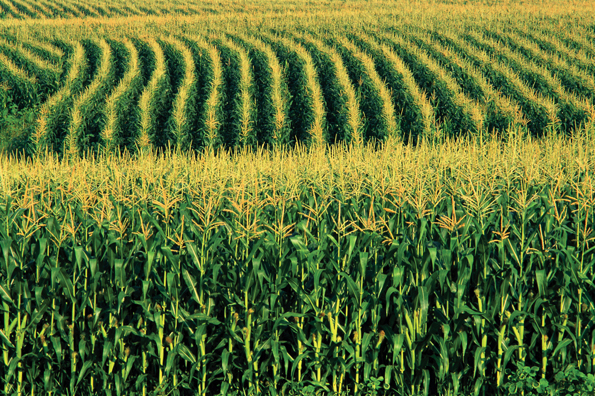| Upcoming Events: Apr. 14: Succession and Estate Planning,10 a.m.-3 p.m., Extension Office, Beatrice, Register Apr. 15: Succession and Estate Planning, 10 a.m.-3 p.m., City Auditorium, Hartington, Register Apr. 15: Webinar: Ag Carbon offsets and the carbon bank, Noon, https://go.unl.edu/bahv Apr. 17: Polk Co. Household Hazardous Waste Collection, 8:00 a.m. – 11:00 a.m., Polk County Fairgrounds, Osceola Apr. 17: York Co. Household Hazardous Waste Collection, 1:00 pm – 4:00pm at the York Landfill, 1214 Road 15 Apr. 20: Crop Science Investigation (CSI) for youth, 4:45-5:45, RSVP jrees2@unl.edu Apr. 22: Question, Persuade, Refer (QPR) Suicide Prevention Training, 11 a.m., https://go.unl.edu/qpr21 Apr. 24: Seward Co. Cleanup Day, 8:00am – 12:00 p.m. at City of Seward Wastewater Plant Parking Lot – 1040 S Columbia Apr. 24: Butler Co. Household Hazardous Waste Collection, 1:30pm – 4:30pm at Butler County Fairgrounds, 62 L Street, David City – North Entrance |
Household Hazardous Waste Clean-Up will be held at four times and locations for residents of Polk, York, Butler, and Seward counties. These clean-ups are funded by Environmental Trust grants with Four Corners Health Dept. and various sponsoring organizations overseeing the collection at the locations.
The collections will occur:
- Polk Co.: Saturday, April 17 from 8:00 a.m. – 11:00 a.m., Polk County Fairgrounds, Osceola
- York Co.: Saturday, April 17 from 1:00pm – 4:00pm at the York Landfill, 1214 Road 15
- Seward Co.: Saturday, April 24 from 8:00am – 12:00 p.m. at City of Seward Wastewater Plant Parking Lot – 1040 S Columbia
- Butler Co.: Saturday, April 24 from 1:30pm – 4:30pm at Butler County Fairgrounds, 62 L Street, David City – North Entrance
On the specific date and time, residents of that county are welcome to bring their residential household hazardous waste in boxes. Paint in one box and other materials in a separate box. If you are not sure what something is, keep it away from other materials.
Acceptable Materials (quantities of more than 5 gallons cannot be accepted): Acids, Antifreeze, Banned Materials (chlordane, DDT, etc), Cyanide, Fertilizers (yard chemicals), Flammables, Gasoline and Oil (in small quantities), Lead Acid Batteries, Mercury and Mercury-Related Materials, All Paint and Paint-Related Materials (stains, varnish, etc), Poisons, Pesticides, Florescent Bulbs (please do not tape together)
Non-Acceptable Materials: Empty/Dried Out Paint Cans (these can go directly into your regular trash), Tires, Farm Chemicals, Electronics, Medical Sharps, Recyclables.
IN SEWARD COUNTY ONLY: They’re also additional collections at the same date/time: Scrap Metal & Appliances $5 per appliance or load of metal. Electronics Recycling: $10 – all LCD monitors; $20 – CRT (glass tube) monitors or tv’s up to 25″; $30 – TV’s 27″ and up; $40 – Large wooden projection TV’s.
Soil Temperature information for planting and applying pre-emergence herbicides can be found at: https://cropwatch.unl.edu/soiltemperature.
Crabgrass Preventer timing: Crabgrass germinates when soil temperatures are maintained at 55F for 5-7 consecutive days. We’re getting closer to this. You can watch the CropWatch soil temperature maps at the link listed above. You can also use a meat thermometer (that you dedicate to only taking soil temperature!) for your own lawn situation at a 2-4” depth. Typically, towards the end of April/beginning of May is a good time for the first application, but it will vary by year. When they’re applied too early, they can move out of the zone where the crabgrass seed is germinating. Would also recommend that you consider splitting your crabgrass herbicide application. Apply half of the highest labeled rate when soil temps warm and the other half 6-8 weeks later. Often there’s a flush of crabgrass later in the season and splitting the application can help with that. It’s helpful for the products to be watered in within 24 hours for best results.
Pastures and annual grass control: Have looked at several smaller pastures (often grazed by horses & hayed) that have issues with foxtail. Foxtail tends to emerge when soil temps are sustained around 60F, so using a pre-emergent herbicide such as Prowl H20® can help in addition to grazing management. There’s a good article in this week’s CropWatch regarding annual grass weed control for alfalfa and pastures at: https://go.unl.edu/nzmy.
Planting Considerations: In an article last year at this link https://jenreesources.com/2020/04/12/jenrees-4-12-20/, I shared about planting considerations. I don’t have anything new to add to this, so you can check that out if you’re interested. Next week will share results of a soybean and corn germination/emergence experiment I’ve been working on since Mar. 10.


































